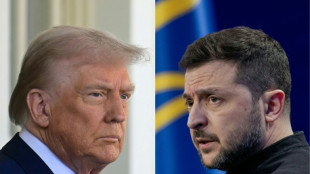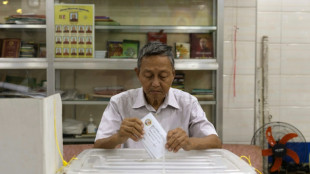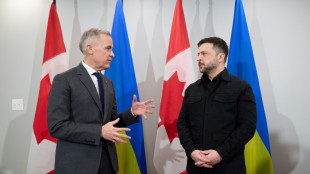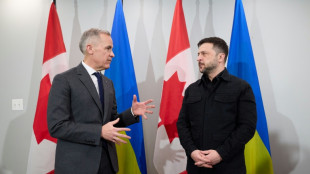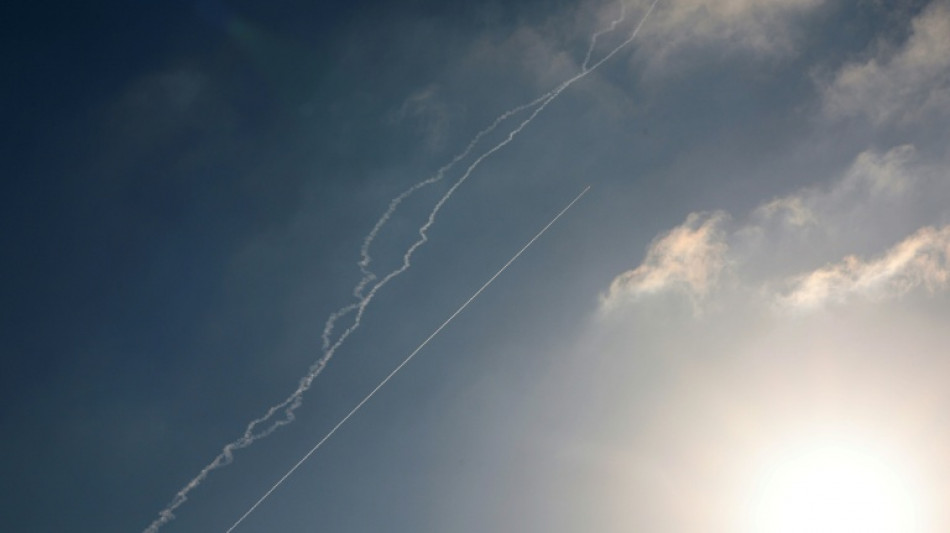

Israel's Netanyahu says Iran will 'pay heavy price' after hospital hit
Prime Minister Benjamin Netanyahu said Iran would "pay a heavy price" after a hospital in southern Israel was hit during an Iranian missile attack on Thursday, while his defence minister said Iran's supreme leader would be "held accountable".
"This morning, Iran's terrorist dictators fired missiles at Soroka Hospital... and at civilians in the centre of the country. We will make the tyrants in Tehran pay a heavy price," Netanyahu said in a post on X.
The Soroka Hospital in the southern town of Beersheba was left in flames following an early morning barrage of "dozens" of Iranian ballistic missiles, with impacts also reported in two Israeli towns close to coastal hub Tel Aviv.
Speaking at the scene of the hospital, director Shlomi Kodesh said that a surgical building which had been evacuated in the past few days was hit, adding that 40 people had sustained injuries.
"Several wards were completely demolished and there is extensive damage across the entire hospital with damage to buildings, structures, windows, ceilings across the medical centre," he told journalists.
Iran said it was targeting an Israeli military and intelligence base, not the health facility.
The latest escalation came on the seventh day of deadly exchanges between the two countries, with US President Donald Trump maintaining suspense about whether Washington will enter the war alongside Israel.
Iran's supreme leader Ayatollah Ali Khamenei has rejected Trump's demand for an "unconditional surrender", despite claims from the US leader that "Iran's got a lot of trouble and they want to negotiate".
- 'Never surrender' -
Trump has left his intentions on joining the conflict deliberately ambiguous, saying Wednesday: "I may do it, I may not do it. I mean, nobody knows what I'm going to do."
"The next week is going to be very big," he added, without further details.
Any US involvement would be expected to involve the bombing of a crucial underground Iranian nuclear facility in Fordow, for which special bunker-busting bombs have been developed.
The White House said Trump would receive an intelligence briefing on Thursday, a US holiday. Top US diplomat Marco Rubio is set meet his British counterpart for talks expected to focus on the conflict.
"I have ideas as to what to do, but I haven't made a final (decision)," Trump said. "I like to make the final decision one second before it's due, because things change. Especially with war."
The Wall Street Journal reported that Trump had told aides on Tuesday he had approved attack plans but was holding off to see if Iran would give up its nuclear programme.
Trump told reporters that Iranian officials "want to come to the White House", a claim denied by Tehran.
The US president had favoured a diplomatic route to end Iran's nuclear programme, seeking a deal to replace the 2015 agreement he tore up in his first term.
But since Israel unleashed the campaign against Iran last week, Trump has stood behind the key US ally.
- Nuclear sites -
On Thursday morning, Israel said it had carried out dozens of fresh raids on Iranian targets overnight, including the partially built Arak nuclear reactor and a nuclear facility in Natanz that has been struck previously.
The Israeli military said the Arak site on the outskirts of the village of Khondab in central Iran had been hit "to prevent the reactor from being restored and used for nuclear weapons development".
There was also a "near-total national internet blackout" in Iran on Wednesday, a London-based watchdog said, with Iran's Fars news agency confirming heavier internet restrictions after initial curbs imposed last week.
The military campaign has sparked calls for a return to diplomacy.
Russian President Vladimir Putin said Thursday that a deal to guarantee both Israel's security and Iran's desire for a civilian nuclear programme was possible.
"I believe it would be good for all of us together to look for ways to stop the fighting and seek ways for the participants in the conflict to find an agreement," he told foreign journalists at a televised event.
He said Iran had not asked Russia for military help.
- Daily barrages -
An Israeli military official, who asked not to be named, said Wednesday that Iran had fired around 400 ballistic missiles and 1,000 drones since the conflict began on Friday.
Iranian strikes have killed at least 24 people and injured hundreds since they began, Israeli Prime Minister Benjamin Netanyahu's office said on Monday.
Iran said Sunday that Israeli strikes had killed at least 224 people, including military commanders, nuclear scientists and civilians.
Both countries have not issued an updated official toll since then.
Israel says its surprise air campaign is aimed at preventing Iran from acquiring nuclear weapons.
Iran had been enriching uranium to 60 percent -- far above the 3.67-percent limit set by the 2015 nuclear death but still short of the 90-percent threshold needed for a nuclear warhead.
Israel has maintained ambiguity on its own atomic activities, but the Stockholm International Peace Research Institute says it has 90 nuclear warheads.
burs-sah-adp/jsa
O.Kawai--HStB



